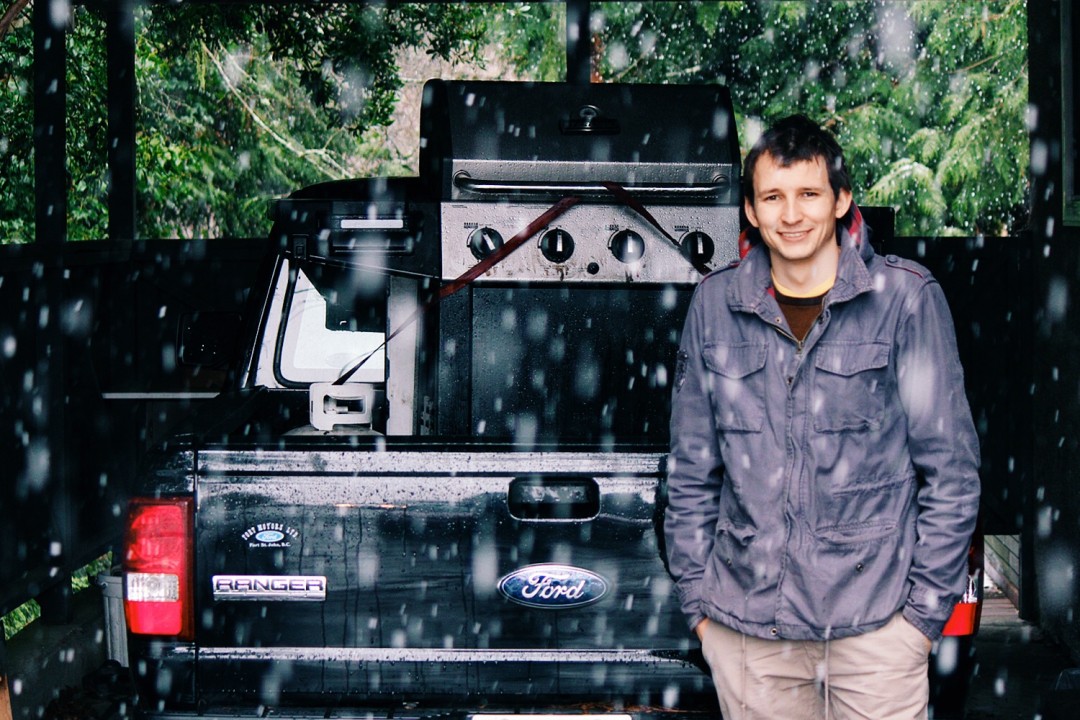It’s raining again. A man takes refuge under an overhang in front of a downtown shop—his shoes still soaked from the night before. A soggy coat clings to his fragile body, barely offering any warmth. A sudden stab of pain in his stomach reminds him that the last time he ate was yesterday. Worse, the buzz from his last hit is starting to wear off. But he doesn’t have time to think about his hunger or the intense discomfort, as the shop owner comes out and tells the man he needs to move along.
Experiences like these are shared by hundreds of people in Victoria’s downtown core. Men and women whose daily struggle isn’t what clothes they should wear, what people at work will think about them, or if they’re on track with their five year plan, but where they can find their next meal; or where they are going to sleep at night; or if they’ll ever kick their addictions and get clean. But who tries to help these people who, according to a rough survey conducted in 2005 by Victoria’s Cool Aid Society, number upwards of 800? Willem Brussow, a 27 year-old engineering student at the University of Victoria, wondered the same thing.
“A friend of mine and I were at church and after the sermon we realized that we could be doing more,” says Willem, “like we were just going to church and not really doing much. So we decided we would take our little camping BBQ and we took it down and cooked about eight burgers for people. And people were blown away by it. They didn’t know how somebody could go out of their way to do that.” Five years later and Tailgate Grill, as its come to be known, is still going strong. Every Sunday, no matter the weather, Willem and a group of volunteers hoist his BBQ onto the back of his truck, drive down to the park beside the Johnson Street Bridge and cook burgers for any hungry people downtown. They often serve upwards of 80 burgers. But for Willem it’s about more than just keeping bellies full.
“Street people, homeless people, or people panhandling on the street don’t often get treated like people,” says Willem, “they might have somebody walk by and not even look at them. Maybe throw some money into their tin or hat or maybe not even that. They often don’t get the respect that every human being deserves. I think that’s one of the reasons it’s important because we can kind of restore that little bit of dignity by talking with them face to face and hearing their story.” Willem and the people who help run Tailgate spend a lot of the time simply chatting with the people who come to grab a burger.
“We have a lot of people that come out and don’t necessarily need a burger but like the company and the community,” adds Willem’s wife, Jessica Brussow, “quite a few people are community starved instead of just food starved. Some people specifically tell us that they come basically to see us and to chat.” The Brussows see some people once or twice and then never again, but some they have been seeing for the five years they’ve been involved. They’ve heard grim stories of losing battles with addictions, or people they’ve met ending up in prison or worse. They’ve heard stories of people entering rehab, getting clean and finding homes. However, they stress their goal is not to fix people.
“If you were trying to evaluate Tailgate based on outcomes it doesn’t make sense,” says Jessica, “we don’t have the resources or infrastructure to be outcome based. Sometimes someone just sort of needs to be there in those gaps.”
“Who knows what impact a few extra positive interactions can have?” adds Willem, “we might be the only positive interaction they have that week. Everything else might be negative or abusive. So just to have that place to celebrate little victories, or a place to cry, or a place to get prayed for may have a big impact.” Willem says that it can be difficult for someone to continue to stay sober if their immediate group of friends is getting high or drunk all the time. As a result success stories may go unheard or individuals may even be ostracized for their attempts at sobriety. Quite often individuals end up falling back to old habits and this can make keeping volunteers around difficult.
“It’s been challenging until the last year to find committed volunteers,” says Willem. “Volunteering with kids or youth is so much more fun than volunteering with street people. It’s fun with kids, you can play sports you can play games.”
“And sometimes there’s more of a sense of hope for the future.” Jessica adds.
“The sad reality is a lot of the people we cook burgers for and chat with are going to stay in that same situation or worse.” Willem remarks that, “It can be quite discouraging for volunteers to put in months and months and maybe not see any fruit from it.” This doesn’t stop the Brussow’s commitment to keep Tailgate going, however. And fortunately they have gained a very committed group of volunteers during the past year. Staying motivated can be hard at times, even for the Brussows.
“Sometimes I can think ‘oh I’d rather just go for brunch or take a nap on a Sunday,’” says Jessica, “but I feel like in the big scheme of things it is a very small thing that we do. It’s a small investment of time that may have a big impact. And it’s not like you love someone when they reach this point of perfection. You love them where they are and value them where they are. I think that’s what we try to do.”
“Tailgate is not based on an end result.” Says Willem, “It’s about showing love and creating community. That’s what makes me come back.”

